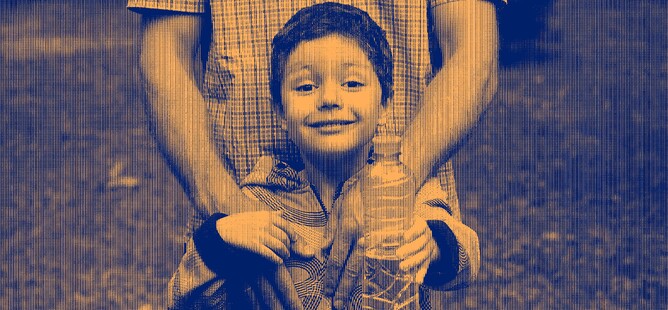By Chris Sellers (CEO)
As good as it gets
The Covid-19 crisis is having, and will continue to have, a significant impact on the retail world. Some retail sectors have been hard hit, others like grocery, have not only seen heavy demand, but shone through this dark time. From large multiples to local stores they have demonstrated an ability to both meet new challenges and to act for the greater good.
Of course, there have been some hiccups along the way. The ‘just enough, just in time’, supply chain model, strained under the massive increase in demand for essentials ranging from toilet paper to pasta and paracetamol. But it responded with speed and efficiency and its staff responded with courage and compassion.
Online grocery sales have also boomed and, while struggling with demand, have helped to ensure that social distancing and self-isolation were made easier. Local shops have also supplied a vital service to communities, providing for those who cannot make it to the bigger supermarkets and often, remarkably, having the stock that the major multiples are finding hard to find.
So, for the time being, the grocery sectors are in the public’s good books. But how will the sector react when the crisis finally eases? This month was supposed to see the annual World Retail Congress take place in Rome. Once again, this has fallen foul of Covid-19 and has now been postponed to October of this year. However, the original agenda was themed around relevancy and built on the premise that:
“New business models and rules for success are emerging that are challenging everything and asking fundamental questions about the very role of retailing. At the heart of all this change is the consumer. They will buy from those that have the greatest relevance to them: by understanding their needs and wants and by having a powerful and clear purpose”.
I was particularly interested in the session entitled ‘Good is the new cool’ given by Bobby Jones co-author of the eponymous book. The session was due to explore, in the organisers own words, how “having a social purpose is now one of the most important pillars of a retail business today, particularly if you are looking to reach millennials and Gen Z. Consumers.”¹ This is a key issue for retailers in a world where, according to Anna Lappe the writer and activist, “Every time you spend, you’re casting a vote for the kind of world you want”.²
When times are hard we can still help
In a post Covid-19 world the economic shock of the crisis will see many countries entering serious recessions. Inflation may follow the money printing that governments are already using to alleviate the crisis. In times like these will consumers still be able to shop with a conscience?
Charlotte Wright from Elior, one of Water Unite’s partners, is already thinking about the issues that may arise if the world faces a global recession: “I am conscious of the economic impact of the coronavirus on our nation, we may find that some people are forced to move away from socially and environmentally friendly choices if those products are at a higher price. That said, we know that millennials and Gen Z place high priority on spending with brands they feel connected to, even if this means they go without in other areas.”
It may be tempting to think as the developed world copes with Covid-19 that our attention has become inwardly focused on our own trials and tribulations. However, attention is already being drawn to the damaging effects the virus will have in the developing world.
Along with the rules of each nation’s lockdown, the No. 1 refrain in the battle to beat the virus has been to wash our hands at every opportunity. We are fortunate that clean running water on tap and ample supplies of soap (providing the shops can get it on the shelves in time to meet demand) makes this easy to do. However, in developing nations, access to abundant clean water or effective sanitation and hygiene is not a given, especially in poorer, marginalised and often crowded communities. 1 in 10 people - 785 million - still lack basic water services, including the 144 million who drink untreated surface water.³ These issues are already being raised and it is inevitable that we will see on our televisions and computer screens more distressing reports from areas where lack of clean water, hygiene, sanitation and any kind of effective health provision takes a terrible toll.
Providing not just immediate relief, but long-term solutions that will give these communities increased resilience in the future, is vital. The UN, WHO and aid agencies are already focusing on the issues. But will, consumers in developed nations, themselves recovering from a crisis which has already caused massive economic shock, be able to help?
We think they can. The crisis has brought people and communities together, even when they have been physically forced apart. When life returns to a semblance of normality we believe that this sense of social responsibility will continue and it will focus on the issues facing the wider world. This may be further emphasised by the disruptions to the global supply chain that result from Covid-19 affecting the millions of people in developing nations harvesting crops and extracting the raw materials that power the global economy.
The Micro Levy… doing good, made manageable
In times of hardship, the Water Unite micro-levy model of 1 cent for every 1 litre of bottle water purchased, makes more sense than ever. It gives retailers the opportunity to demonstrate their social and community credentials and it allows consumers to both make a choice about the brands they support and to make a difference by contributing a small and affordable amount that will have a profound impact. The monies raised from the micro levy are then leveraged through an Impact Investing Vehicle to deliver funding for a range of entrepreneurial projects that provide sustainable, circular and long-term WASH and plastic pollution solutions.
So, as we hopefully see some light at the end of the tunnel, let’s not lose the opportunity to turn the Covid-19 crisis into a force for greater good around the world that unites retailers, consumers and their consciences to effect real change.
¹ https://www.worldretailcongres...
² Anna Lappe O Magazine 2003
³ https://www.who.int/news-room/...

